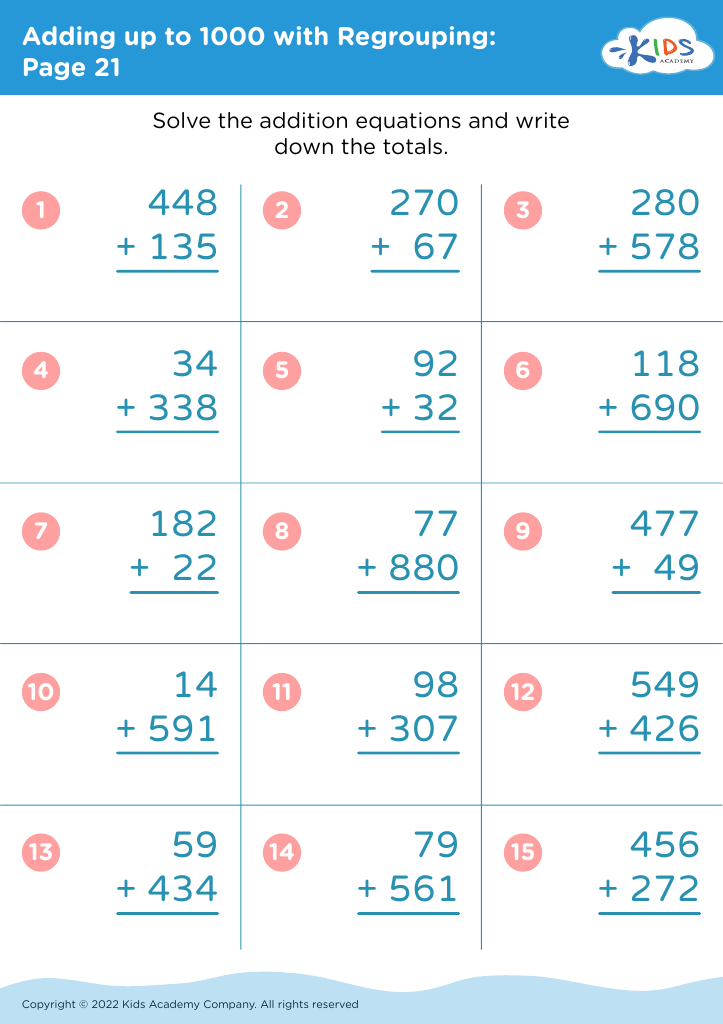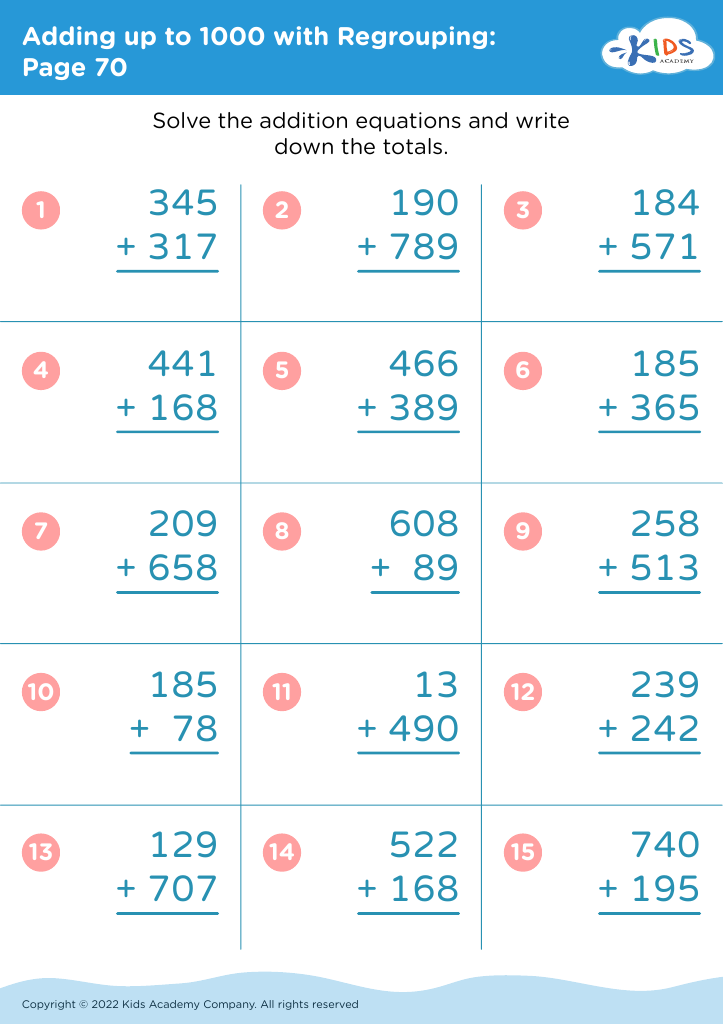Understanding Sequences Adding up to 1000 with Regrouping Worksheets for Ages 8-9
4 filtered results
-
From - To
Explore our engaging "Understanding Sequences Adding up to 1000 with Regrouping Worksheets" designed for children aged 8-9. These worksheets focus on helping young learners grasp the concept of numerical sequences through fun and interactive exercises. By practicing regrouping techniques while adding numbers up to 1000, students will enhance their mathematical skills and develop a solid foundation in arithmetic. Our user-friendly format promotes independent learning and critical thinking, making it an ideal resource for teachers and parents. Encourage your child to master addition, improve their problem-solving abilities, and cultivate a love for math with these stimulating worksheets tailored specifically for their age group!
Understanding sequences and mastering the addition of numbers—particularly the skill of adding up to 1000 with regrouping—is crucial for children aged 8-9 for several reasons. First, this cognitive milestone supports their overall mathematical development. By learning to recognize sequences, children build a foundation for more complex concepts such as multiplication, division, and early algebra, which they will encounter in the coming years.
Additionally, the ability to add numbers competently fosters confidence and curiosity in mathematics. As children navigate exercises involving regrouping—where they carry over values to the next place value—students cultivate problem-solving skills and critical thinking. These skills are transferable across subjects and real-life situations, encouraging children to approach challenges systematically.
Moreover, understanding these concepts early empowers students to tackle future academic subjects with confidence. It allows them to participate actively in classroom discussions and engage in collaborative projects, strengthening their social learning experiences.
Ultimately, by prioritizing comprehension of sequences and addition with regrouping, parents and teachers are setting children up for success, not just in mathematics, but in their overall educational journey. Emphasizing this foundational skill helps ensure children struggle less in later years and develop a love for learning in mathematics.














